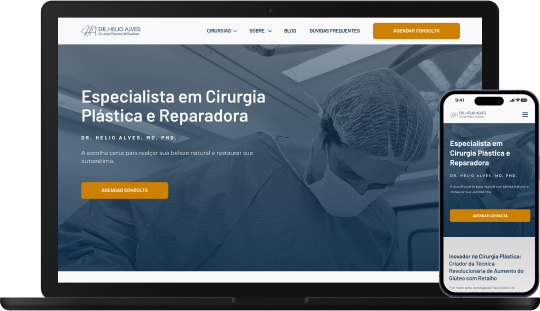
As freelance UX/UI Designers, we were hired by a doctor to enhance his website, which he uses to showcase his expertise and attract patients. After discussing his goals and reviewing the existing site, we identified opportunities to improve usability and clarity.
Our team designed a new site focused on user experience, aiming to build visitor trust and increase patient conversions. We collaborated closely with the doctor to ensure the new design met both his needs and those of his patients.
Matthias Karl Schaefle
Leticia Magri
User research Wireframes
UI design
Prototyping
UX/UI Designer
2023 – 2024
The doctor is a renowned plastic surgeon in São Paulo, Brazil, with 16 years of experience. Specializing in corrective body surgeries, his website showcases his expertise, attracts new patients, and provides detailed service information.
Upon evaluating the website, it was clear the navigation was confusing and the design visually unpleasant. Key areas lacked important information users wanted, as revealed in the research. This made it difficult for potential patients to connect with the doctor’s services.
I worked as a Product Designer, focusing on UX/UI, branding, and logo design. I participated in user research and collaborated with the team to create intuitive UI solutions.
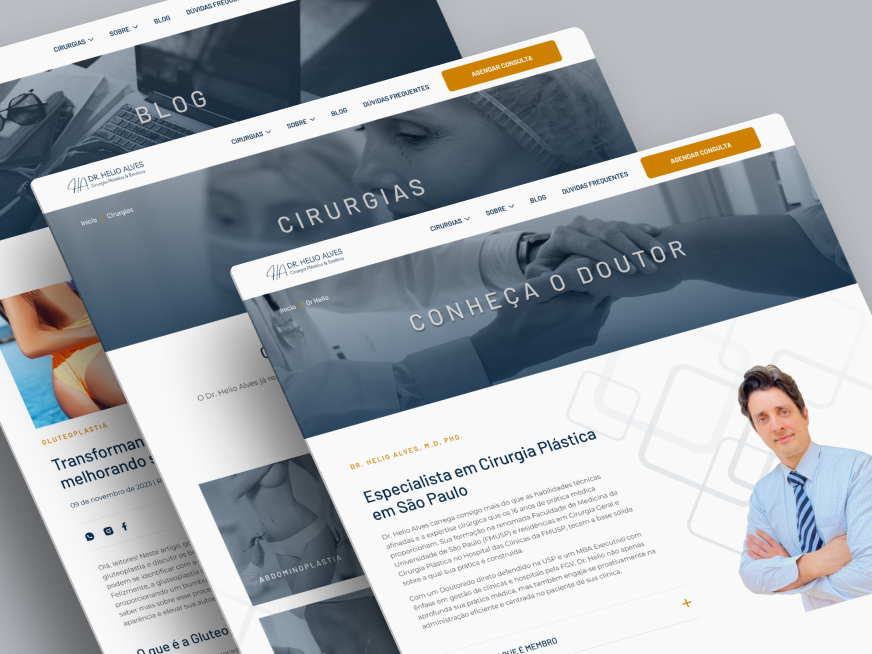
We proposed a user experience focused on usability, tailoring information to patient interests within a modern, responsive design. The visual design was updated for consistency, aiming to enhance efficiency and ensure a seamless experience.
In our initial stakeholder interview, we focused on understanding the project’s objectives and gaining deeper insights into the doctor’s background.
Elevate expertise, boost patient influx, ensure client retention, and increase online visibility.
The doctor wants to promote his innovative technique as a key attraction.
It was emphasized to retain a blue tone, so we integrated it into the new design.
To better understand what patients really needed and expected, I conducted interviews with 5 patients and analyzed their most frequent questions.
Together with the social media and marketing team, we used Instagram question stickers to collect doubts in a more spontaneous and quick way. I then organized these questions into categories to make the analysis easier.
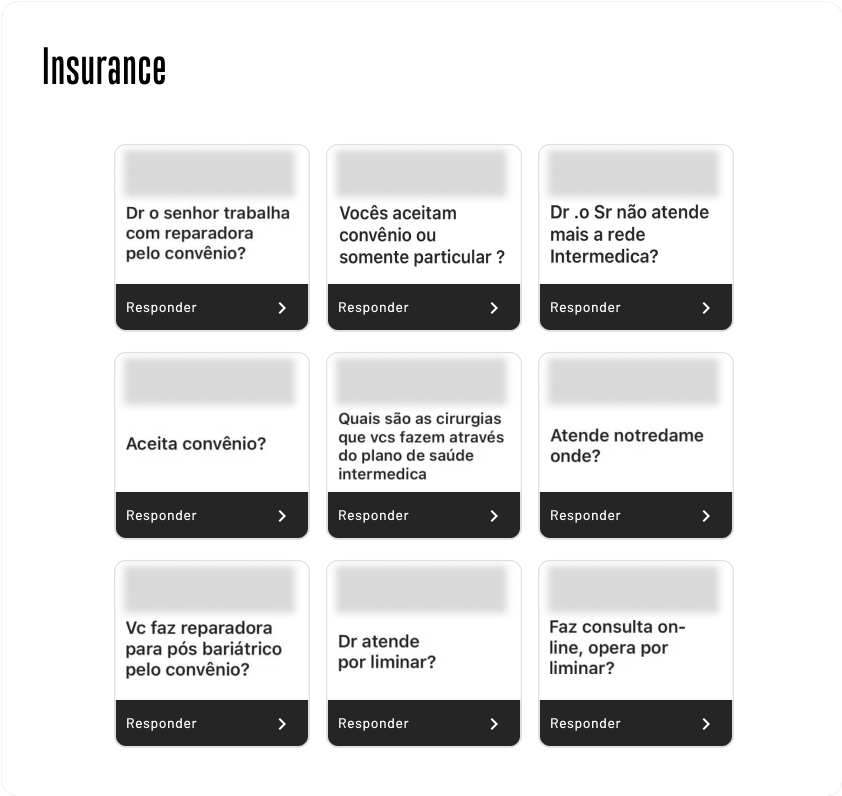
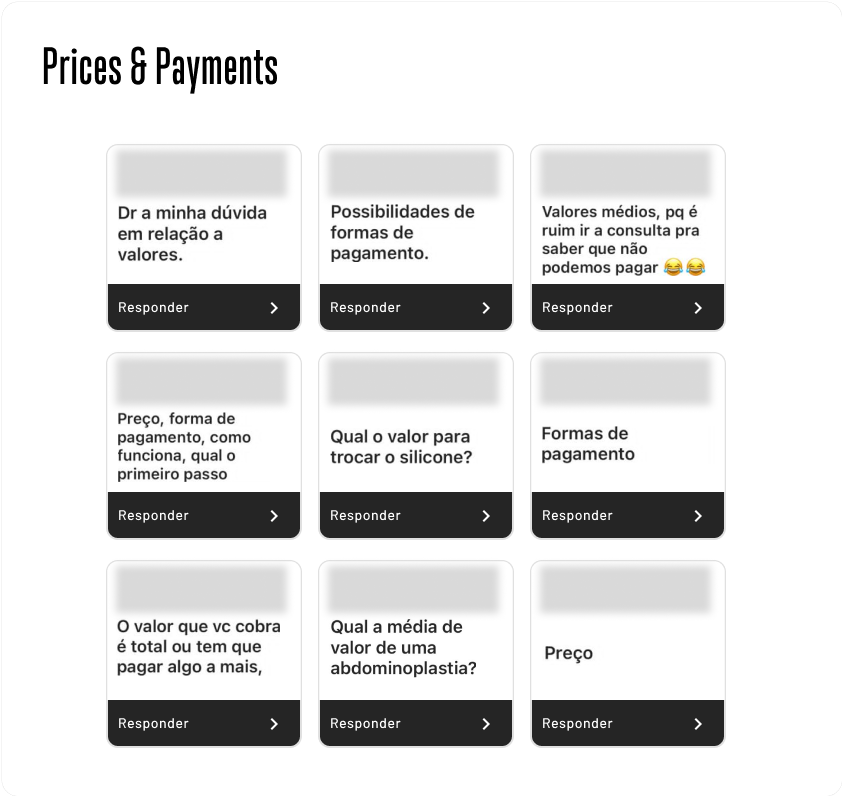
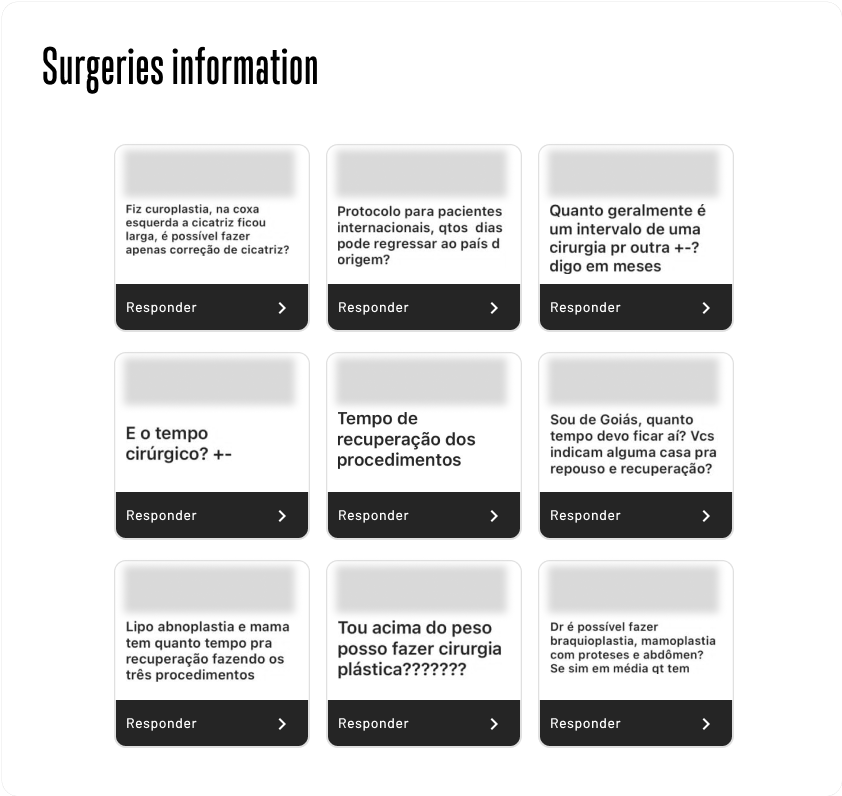
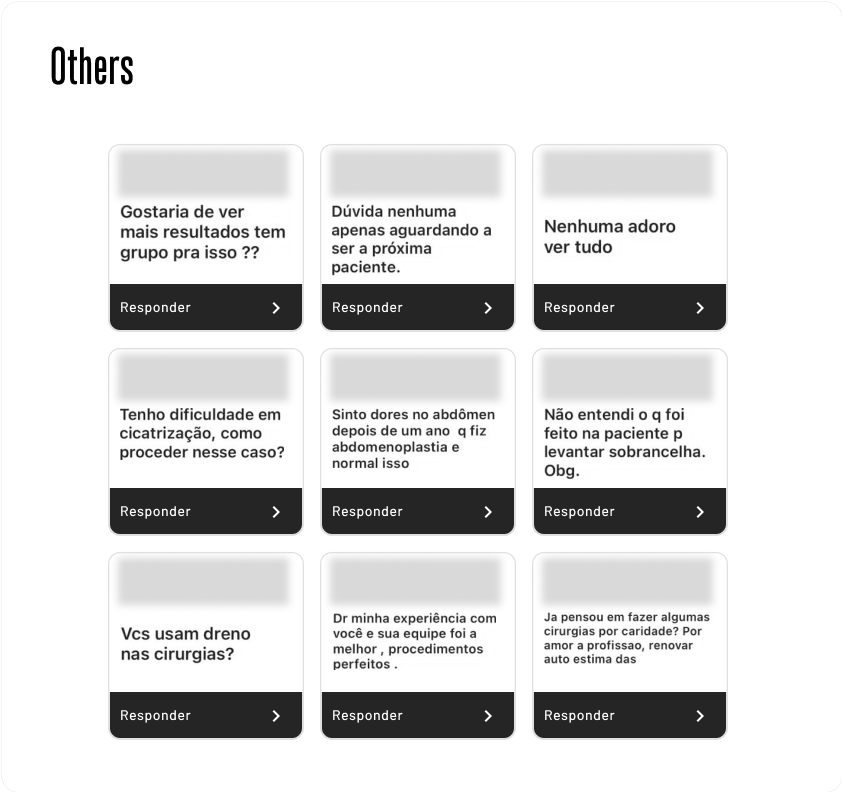
These methods provided valuable insights, uncovering patterns and themes that guided key findings and design strategies.
Patients often have common questions about practical matters like insurance acceptance and payments. Making this information easily accessible is crucial for enhancing their experience.
Patients rely on photos and testimonials for clarity and insights, aiding them in making informed decisions about plastic surgery procedures.
Note: Until the handoff, the display of before and after photos was prohibited by law in Brazil.
Before undergoing plastic surgery procedures, patients dedicate time to reading blogs and online posts to gather information about the entire surgical process.
I analyzed the current interface, focusing on the homepage, to identify opportunities to improve both user experience and design. I also validated research insights to ensure the redesign met patient needs.
View my comments by hovering over the dots

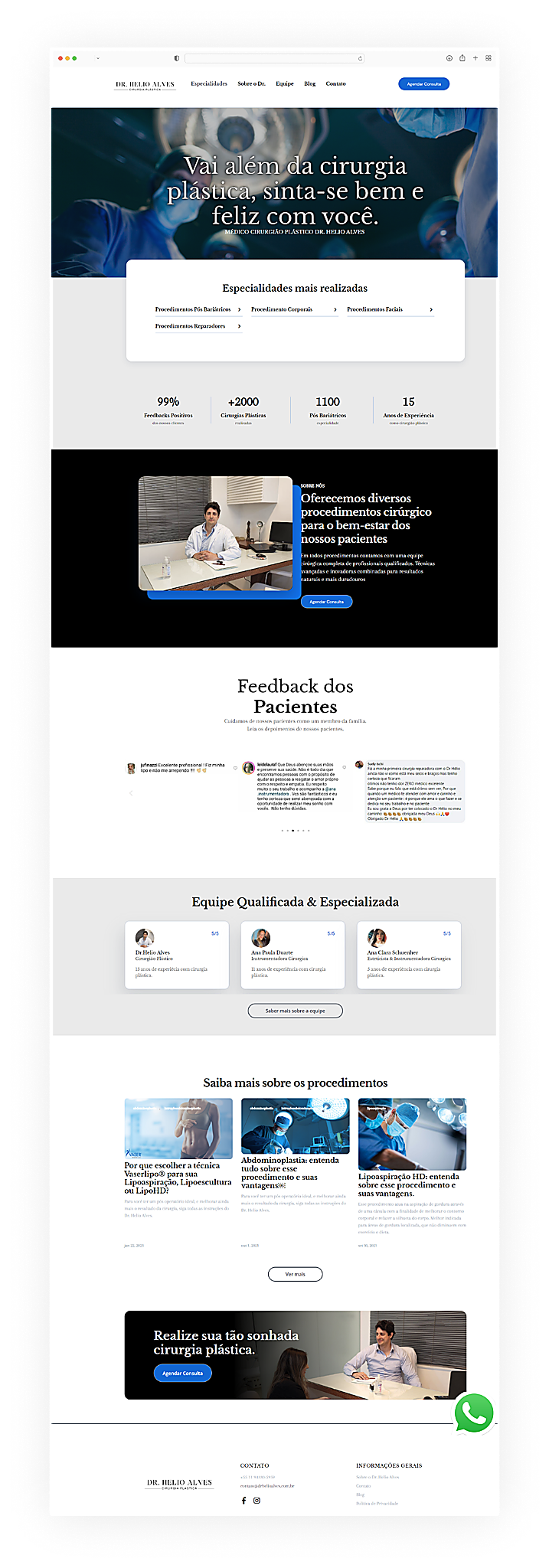
Including an FAQ section can
be valuable for addressing
common questions from
prospective patients.
The list of surgeries could be
clearer and better structured.
A grid system could be
implemented, as the current
site lacks consistency in
layout.
Lack of emphasis on the
doctor's specialization
and technique.
Missing link to the page about
the doctor. Adding this link
builds trust and provides key
information about the
doctor's credentials.
Lack of contrast in fonts and
inconsistency in blog boxes
can be improved.
Absence of clinic address.
Including this information can
facilitate user location and
enhance site credibility.
I crafted a structured style guide for seamless team reference and implementation, ensuring visual consistency and design efficiency.
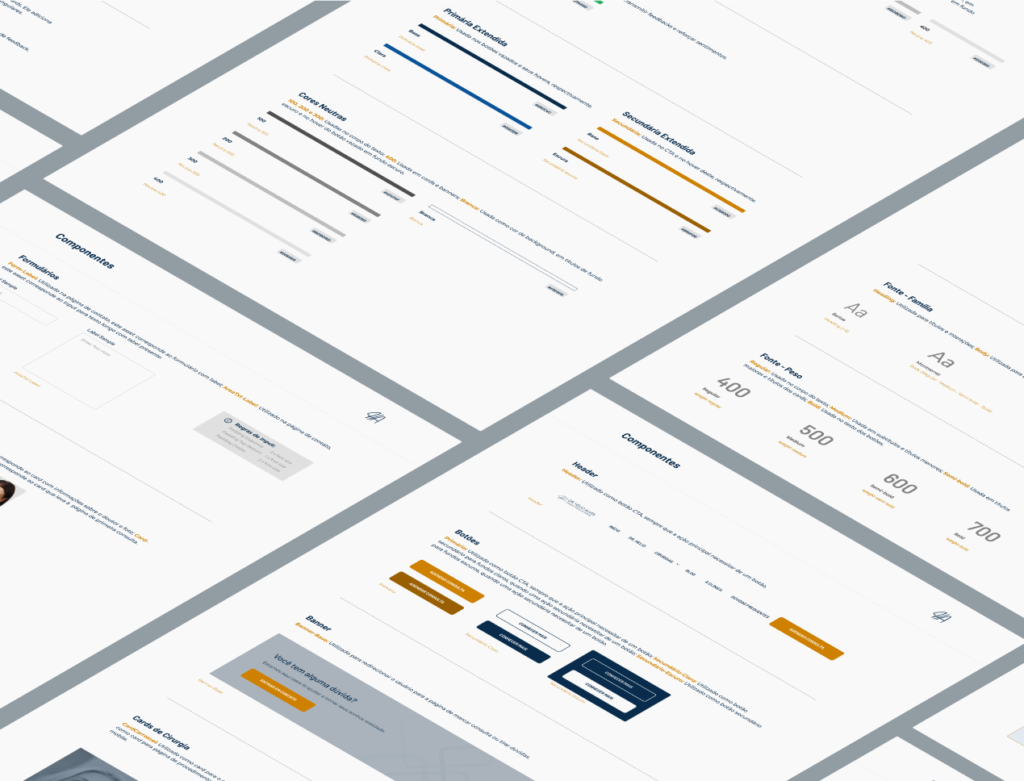
We chose Barlow for the header for its modern aesthetic and clean lines, and Montserrat for the body text for its legibility on various devices.
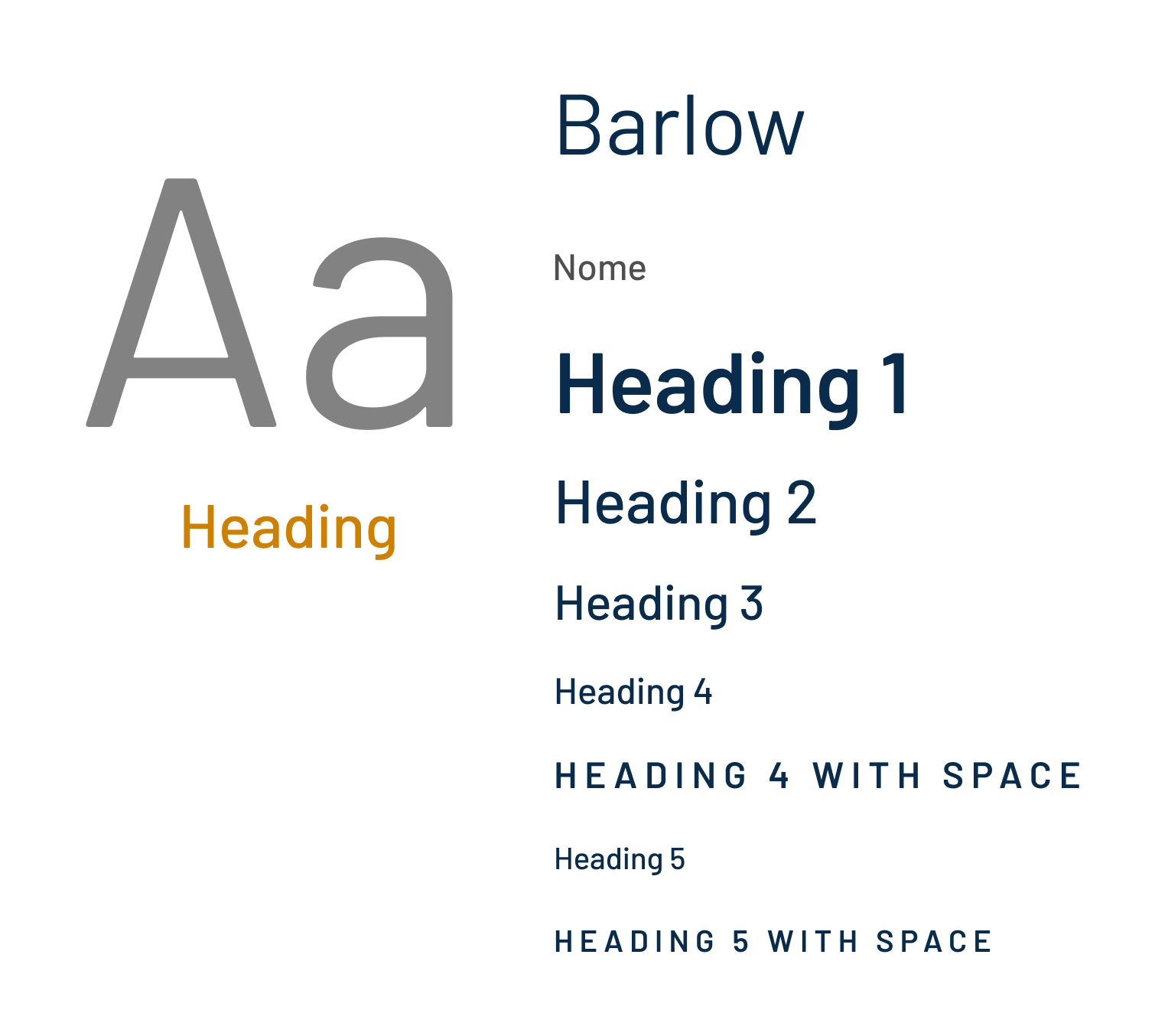
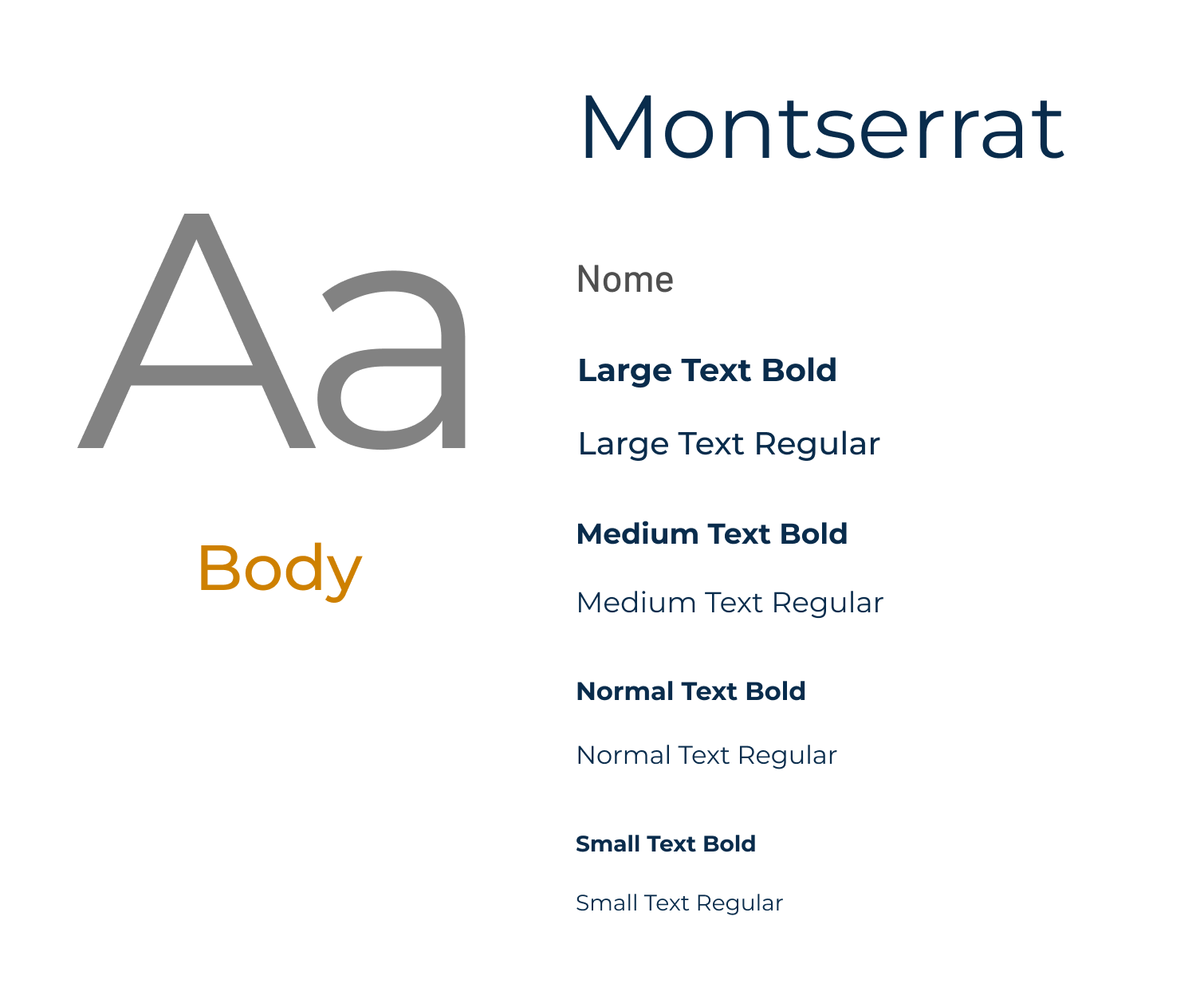
Blue, requested by the stakeholder, for trust and professionalism; gray for an elegant backdrop; and orange for dynamic contrast and attention.
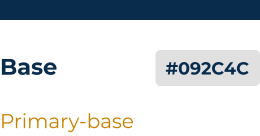

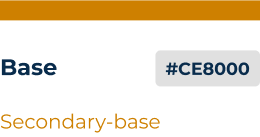
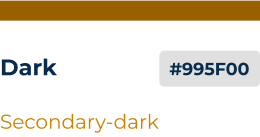


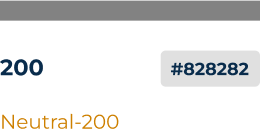


I designed the logo to reflect the doctor’s essence and positioned it as a central element of the brand’s style guide.



And it is already featured on physical items given to patients.
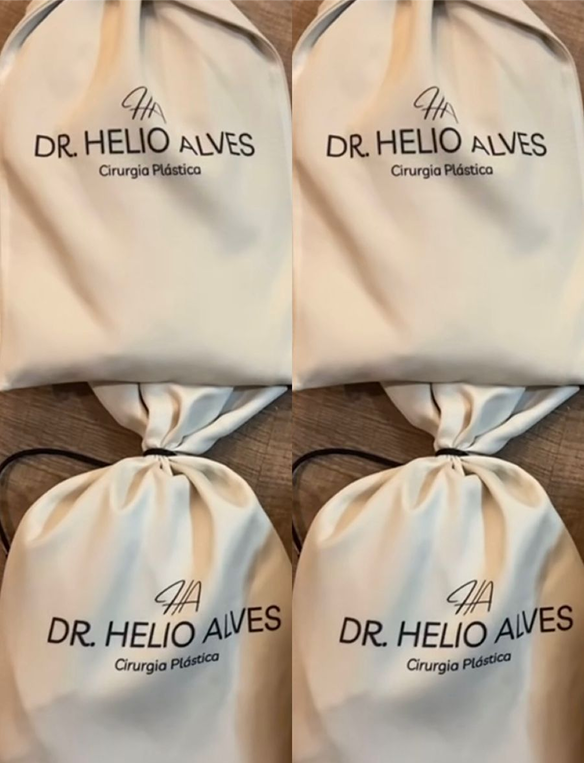
The redesign brought clarity to the navigation and resulted in a UX that is more fluid, reliable, and user-centered.
Please note that i am not responsible for implementing the website, and the current live version is not under my control.
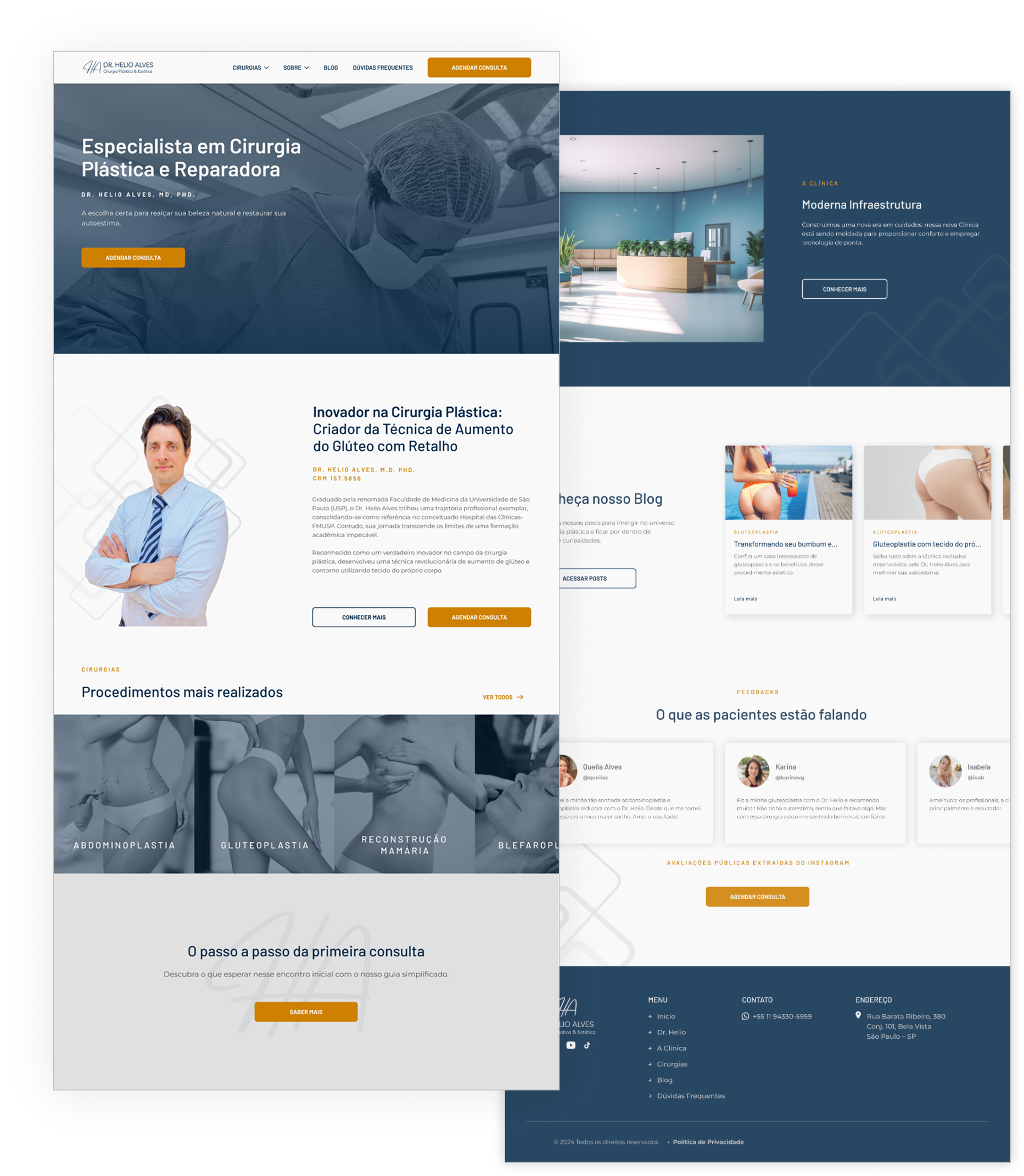
I added the "learn more"
button to allow users to
discover more about the
doctor and his innovative
technique.
I added a homepage section
with clear guidance on the
initial consultation, based on
patient insights from our
interviews.
I chose to feature the most
popular procedures on the
homepage with photos to
capture users' attention and
make them easier to find.
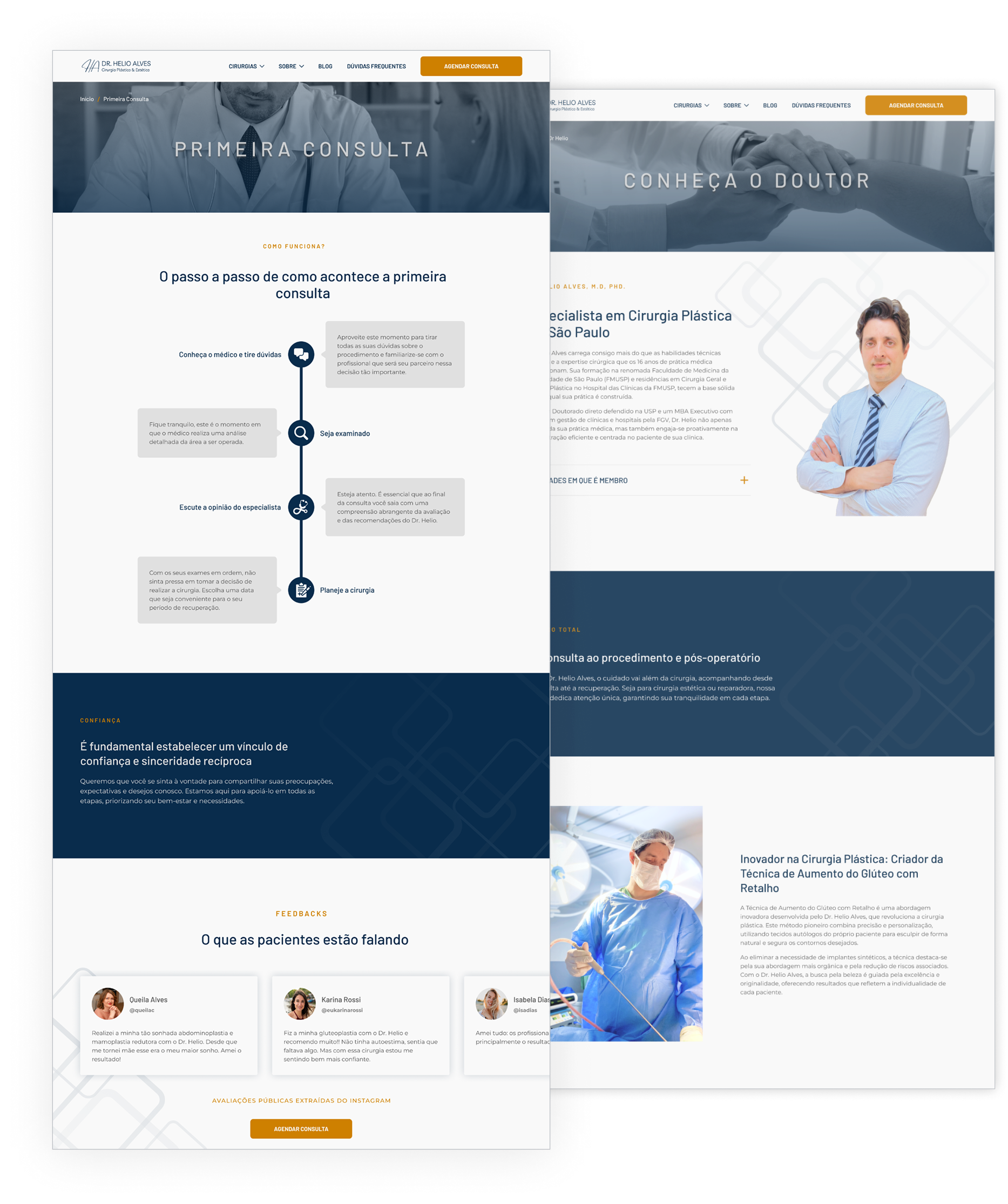
Implemented breadcrumbs for
enhanced navigation.
I created a simple and
easy-to-understand step-by-
step guide, designed as a
timeline, to streamline the first
consultation process.
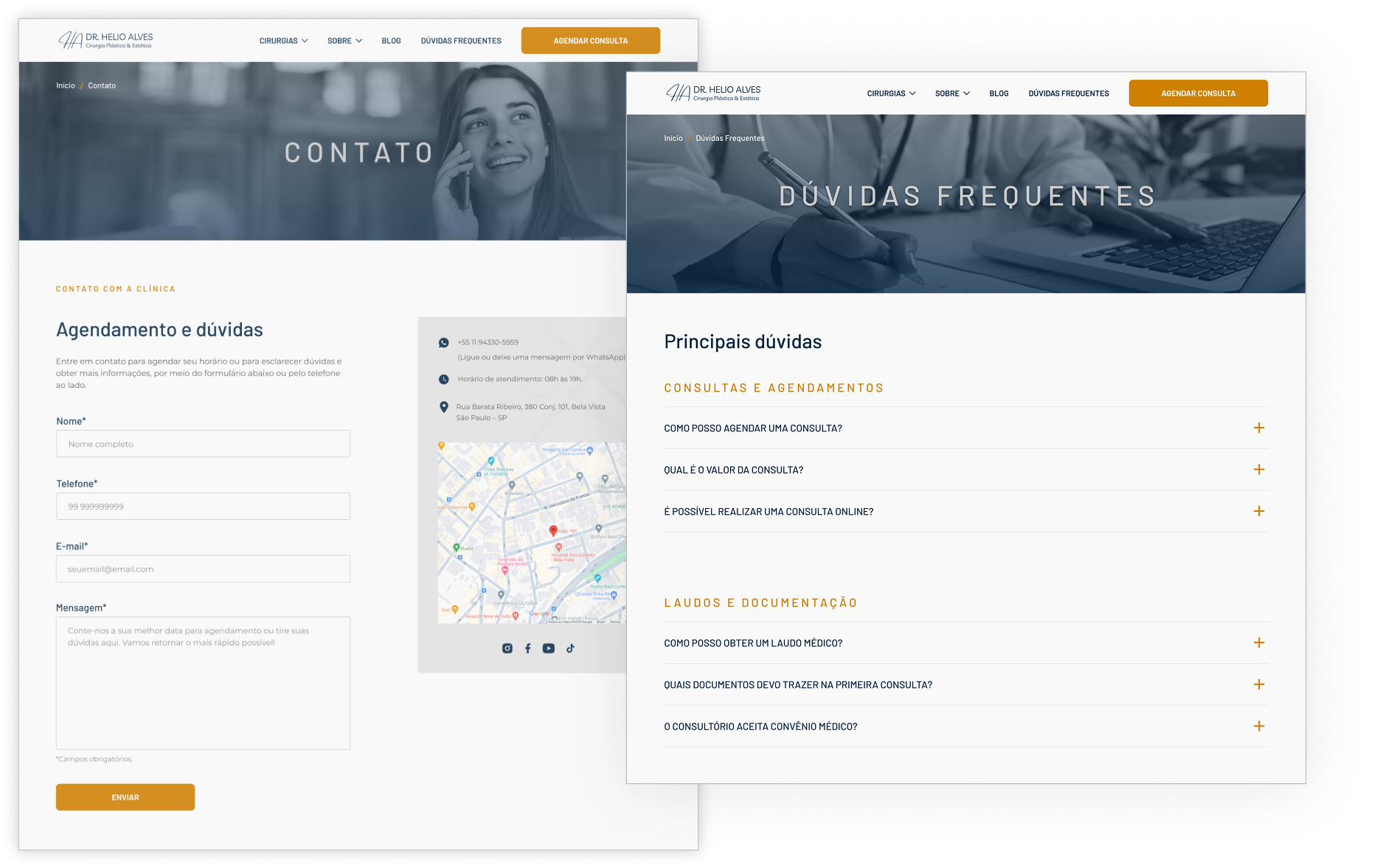
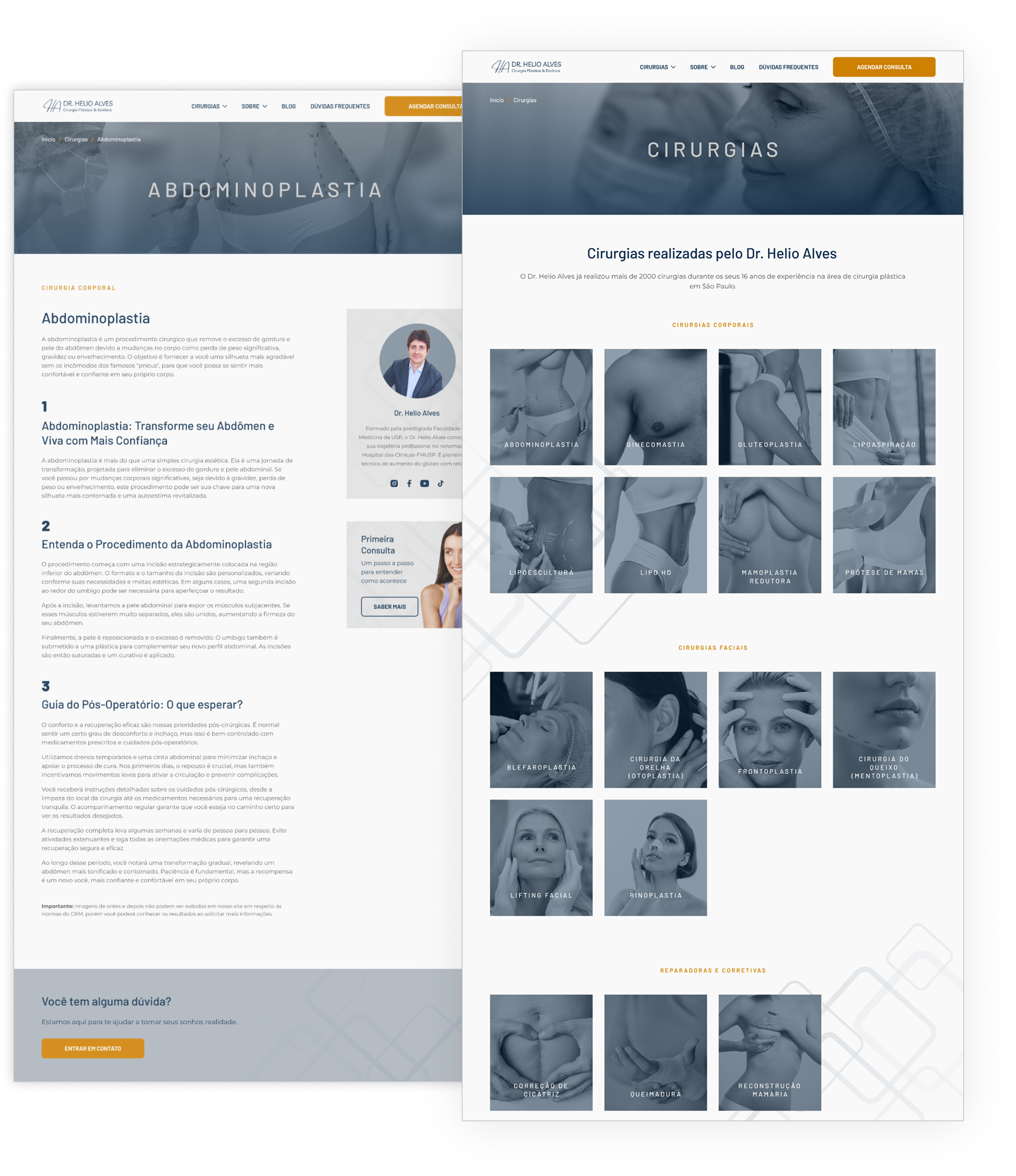

To ensure the website continues to meet user needs and stays updated with industry best practices, it’s essential not to stop here. We need to remain attentive to changes and continuous improvements.
The next step is to conduct usability tests to refine the site based on user feedback.
In the future, new features like a before-and-after page (once permitted) could showcase results and strengthen patient trust.
After implementation, it will be essential to monitor performance to ensure speed and smooth navigation.